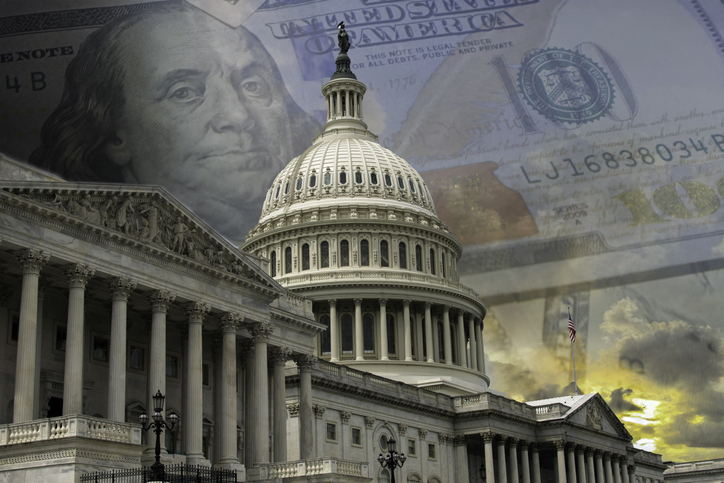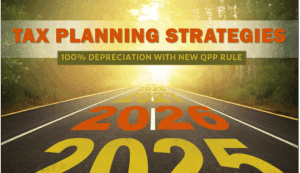On February 9, 2018, President Trump signed the Bipartisan Budget Act (H.R. 1892). The bill’s passage came after a short government shutdown had taken place on Thursday evening and into Friday morning. Unfortunately, the budget sets another short-term date (March 23), through which the government will continue to operate, leaving the potential, again, for yet another government shutdown to be discussed as that date draws near.
The House approved the legislation in the early morning hours of February 9, by a 240-to-186 vote. The Senate approved the bipartisan measure by a 71-to-28 vote taken shortly before the House vote.
From a tax perspective, the Bipartisan Budget Act contains a substantial number of relevant provisions, including additional disaster tax relief and the extension of over 30 expired tax breaks. Importantly, the majority of the tax relief included in the legislation is short-term in nature and applies for the 2017 tax year only.
Tax Extenders
The purpose of the extenders was to provide taxpayers with the expected actual tax benefits available before the passage of the Tax Cuts and Jobs Act on December 22, 2017. As such, the extenders, principally, are intended to assist taxpayers in meeting their 2017 income tax obligations in a “pre-tax reform” format.
Members of both the House and the Senate felt that such an extender package was fair, given that taxpayers had no option throughout 2017, other than to comply with the laws as they were at that time.
The tax extenders (many obscure and limited in application) included in the legislation (some with minor modifications) are as follows (extended only through 2017 unless noted):
- exclusion from gross income of discharge of qualified principal residence indebtedness;
- mortgage insurance premiums treated as qualified residence interest;
- above-the-line deduction for qualified tuition and related expenses;
- Indian employment tax credit;
- railroad track maintenance credit;
- mine rescue team training credit;
- classification of certain race horses as three-year property;
- seven-year recovery period for motorsports entertainment complexes;
- accelerated depreciation for business property on an Indian reservation;
- election to expense mine safety equipment;
- special expensing rules for certain productions;
- deduction allowable with respect to income attributable to domestic production activities in Puerto Rico;
- special rule relating to qualified timber gain;
- empowerment zone tax incentives;
- American Samoa economic development credit;
- credit for nonbusiness energy property;
- credit for nonresidential energy property (extended through 2021 and modified);
- credit for new qualified fuel cell motor vehicles;
- credit for alternative fuel vehicle refueling property;
- credit for 2-wheeled plug-in electric vehicles;
- second generation biofuel producer credit;
- biodiesel and renewable diesel incentives;
- production of credit for Indian coal facilities (extended to a 12-year period);
- credits with respect to facilities producing energy from certain renewable resources;
- credit for energy-efficient new homes;
- energy credit (extended through 2021 and modified);
- special allowance for second generation biofuel plant property;
- energy efficient commercial buildings deduction;
- special rule for sales or dispositions to implement FERC or state electric restructuring policy for qualified electric utilities;
- excise tax credits relating to alternative fuels;
- oil spill liability trust fund financing rate;
- temporary increase in limit on cover over rum excise taxes to Puerto Rico and the Virgin Islands;
- waiver of limitations with respect to excluding from gross income amounts received by wrongfully incarcerated individuals (extended through December 18, 2018); and
- carbon dioxide sequestration credit (enhanced, modified and generally extended through 2023).
Compliance issues arising with respect to the Internal Revenue Service administration function and the “lateness” of reinstating these provisions is sure to cause difficulty in the current tax return filing season. To that end, the Internal Revenue Service issued a statement on Friday noting that they are looking at the bill, as passed, to determine next steps within the agency.
Disaster Relief
The Bipartisan Budget Act also established disaster tax relief for individuals and businesses impacted by the recent wildfires in California. Such relief includes, but is not limited to, allowing certain access to retirement funds, temporarily suspending the limit on charitable contribution deductions, allowing deductions for personal casualty disaster losses and a tax credit for employee retention.
Interestingly, the Act also includes changes to the Opportunity Zones rules for Puerto Rico, which were originally included in the Tax Cuts and Jobs Act but did not find their way into the final conference bill. Additionally, tax relief is extended for areas affected by Hurricanes Harvey, Irma and Maria.
Other Tax Matters
Finally, the Act includes a number of new tax provisions, as well as a few modifications to existing tax provisions. These items include modifications of the rules relating to whistleblower awards, user fees on installment agreements, and hardship distributions and withdrawals from deferred accounts.
The Act also mandates the creation of a new version of Form 1040, similar to a Form 1040EZ, for seniors, for tax years beginning after February 9, 2018 (the 2019 tax year for calendar-year taxpayers).
In another change of the Tax Cuts and Jobs Act, an additional provision of note in the Bipartisan Budget Act is to clarify the requirement for the excise tax on investment income of private colleges and universities. In order for the tax to apply, the 500 students must be “tuition-paying.” This requirement was also included in the original version of the Tax Cuts and Jobs Act, but was removed at the last minute to comply with budget reconciliation rules.
Please send questions or comments to Bob Grossman or Don Johnston at 412-338-9300.








